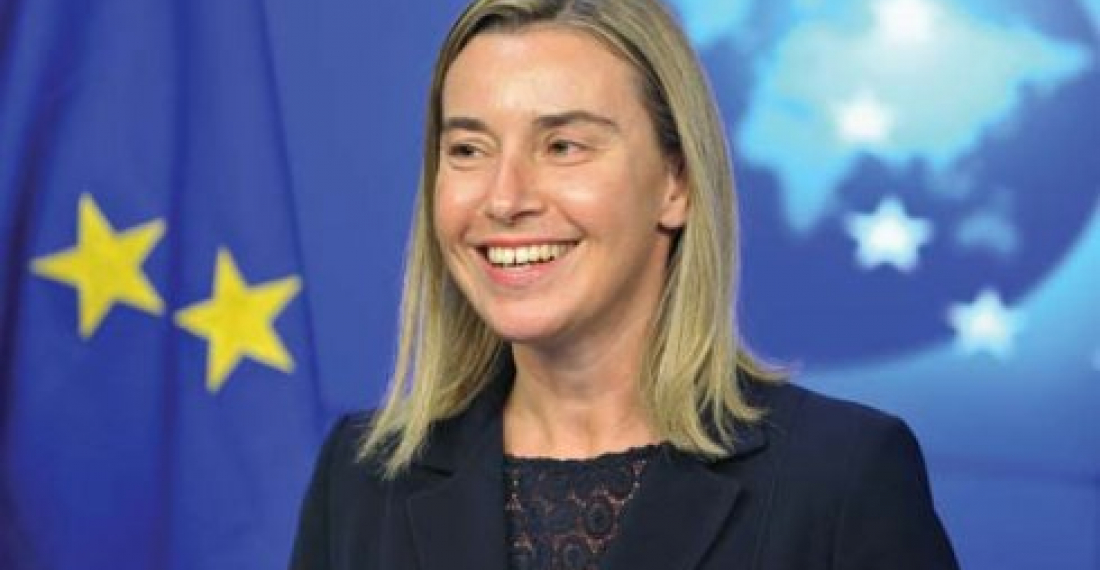Federica Morgherni said she was pleased to hear from the Armenian Foreign Minister the determination of the Armenian government on the reform agenda, on the partnership with the EU, and on the perspective of working even more closely together in the months and years to come.
The first EU-Armenia partnership council was held in Brussels on Thursday, 21 June. For the European Union, the delegation was headed by the High representatove for Foreign and Security Policy, Federica Morgherini. The Foreign Minister of Armenia Zohrab Mnatsakanyan, led the Armenian delegation
Speaking after the meeting, Federica Morgherini said:
Relations between the European Union and Armenia have gone from strength to strength in recent weeks and months. The most visible illustration of this is our new bilateral agreement - the Comprehensive and Enhanced Partnership Agreement.
I heard from the Minister [Zohrab Mnatsakanyan] today a very strong commitment to further implement the agreement, which was ratified - I would like to stress this - unanimously in the Armenian Parliament and has been provisionally applied now since June 1.
The EU-Armenia Comprehensive and Enhanced Partnership Agreement is an ambitious agreement that can play a very important role in particular in bringing benefits to Armenian citizens, but also to the European Union citizens.
Through approximation with EU rules and standards, this will help attract EU investments to Armenia, stimulate trade with the European Union, and develop and modernise infrastructure.
Coming to our Partnership Council, we discussed obviously all of this - the state-of-play and the way forward for the implementation of the Agreement; we addressed a range of different topics.
First of all, we agreed on the importance of combatting corruption, and the Minister [Zohrab Mnatsakanyan] stated a very strong new and clear government's commitment to this that I appreciate, and the concrete action that is already taken by the government in this field.
More broadly on reforms, I was glad to hear about the government's determination and very ambitious agenda, with a focus on public administration and on the judiciary, which is an agenda that has our full support, and I reassured the Minister [Zohrab Mnatsakanyan] on the EU intention and readiness to accompany this process, every single step of the journey.
The European Union is ready to continue supporting Armenia's reform process across a range of issues, including, not only fight against corruption or the reform of public administration and the judiciary as I mentioned, but also the related and interconnected issues of economic development and business environment, as well as the promotion of human rights and measures to restore trust in elections.
With this in mind, the European Union has earmarked more than €160 million in financial assistance for Armenia for the years 2017-2021. Upcoming visits of our European Union teams to Armenia will discuss now how the European Union can support the reforms in the country. The Partnership Priorities that we signed last February guide the provision of EU financial assistance for Armenia over the coming years.
We focussed today and we want our common work first and foremost to bring tangible benefits for the citizens of the country and also for the European Union citizens.
Let me also commend Armenia for the positive contribution it gives to our Eastern Partnership and also the positive role played by the country at the last summit of the Eastern Partnership, but now and in the months to come on the implementation of the decisions we took during the summit.
Our common commitment is to advance cooperation based on the 20 deliverables for 2020 that we defined together. They will shape our common work for the next couple of years. The implementation of the 20 deliverables depends ultimately on the reform work of the partner countries across the different areas of good governance and market economy, but the European Union is fully determined to accompany this process with all our instruments.
We also discussed in our restricted sessions this morning other issues that are less related to the reform agenda. We discussed obviously the need to get to a peaceful resolution for the Nagorno-Karabakh conflict that we see as a conflict that needs an early political settlement. We continue to fully support the mediation efforts and proposals of the OSCE [Organisation for Security and Co-operation in Europe] Minsk Group Co-Chairs, and we will continue to accompany the process with all our determination.
We also discussed a number of regional issues.
On Turkey, the European Union supports the normalisation of relations between Armenia and Turkey and we encourage both sides to continue to engage in this process without preconditions.
We also discussed the implementation of the nuclear agreement with Iran. I was pleased to hear the Minister's support to our work to preserve the nuclear deal with Iran. We discussed ways to work together in that direction.
We also addressed the situation in Syria that is of high concern for both of us, and I would like here to recognise and commend the hospitality and the protection that Armenia is giving to Syrian refugees that we also support financially.
For the future, from what I have seen today - but I had no doubt - I have high hopes that the European Union-Armenia relations will make even greater progress, in a spirit of partnership that is the word we used to name our meetings and our agreement today. So, we will work very closely together to ensure a successful implementation of our new agreement.
I was really pleased, Mr Minister [Zohrab Mnatsakanyan] to hear from you the determination of your government on the reform agenda, on partnership with the European Union, and on the perspective of working even more closely together in the months and years to come.
source: commonspace.eu with the press service of the European External Action Service
Photo: Federica Morgherini (archive picture)






